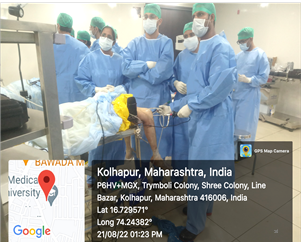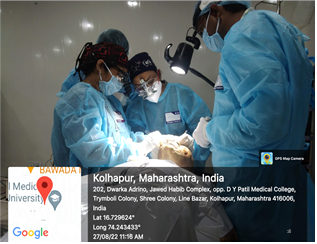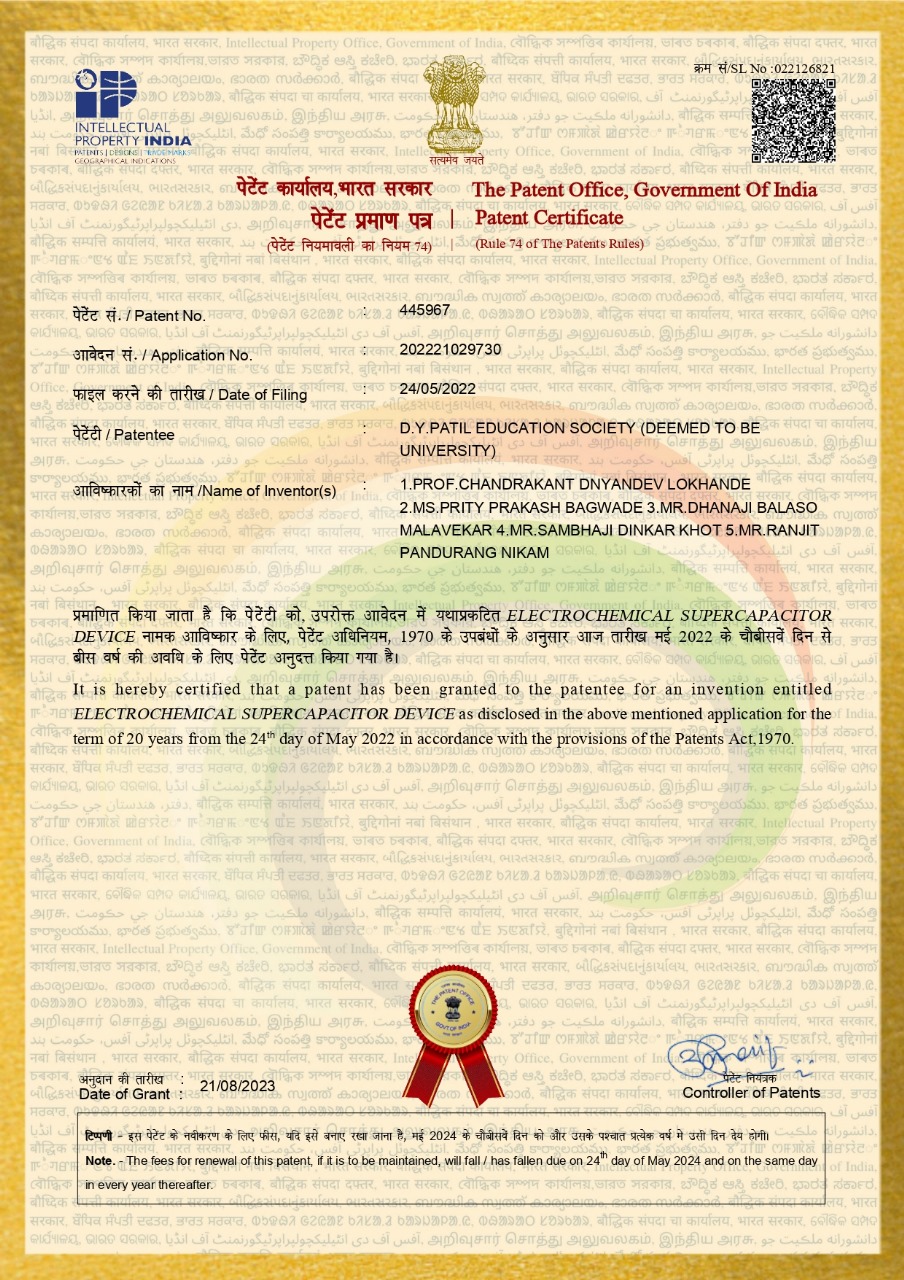Context
Learning and mastering the basics is vital for any subject. Human anatomy is the most fundamental discipline, which serves as a stepping stone for students of modern medicine. The human body being a complex 3 dimensional structure, anatomy is taught using human cadavers.
Students at the first sight of a cadaver often experience shock, fear and sometimes, disgust. This is often due to the pungent odour of formalin used to preserve the cadavers. It also gives the characteristic black, charred, hard appearance to the cadaver. Embalming, although preserves the cadaver, makes it look less human. This causes negative reactions from students in early days of dissection, and even cadaver donors, who have myths or misconceptions about whether their loved one will be treated with dignity and honor they deserve.
The Practice
DYPES, through our innovation and expertise have devised a novel solution for this challenge. Having developed our very own, in-house Soft Embalming Fluid (SEF), which is used in day to day practice to preserve cadavers for training purposes. This fluid, offers various advantages such as; 1) it preserves the cadavers in a soft and supple form, which gives the trainee a simulated experience of handling a real human body, 2) it preserves the organs and external appearance features of the cadaver in a much better condition than traditional embalming procedure, which reduces the negative reactions associated with traditional embalming fluid and 3) being an in-house innovation, it also brings in a cost and convenience advantage to the institute and 4) the positive feedback from students, parents and others involved in cadaver based training acts as a validation and motivation for the department and the university. Soft Embalmed Cadaver based training is now a norm at our university.The university is presently in process of filing a patent for this unique development.
Using this success as a stepping stone, DYPES established a Cadaveric Bioskills Lab as a venture of the university bioskills lab and simulation training outfit. DYPES is proud to state that, this lab when established was first of its kind in Maharashtra, and third of its kind in India. The lab in its vision document aims to provide life like simulation in learning human anatomy, surgery, orthopedic surgery, ophthalmology, otorhinolaryngology, forensic medicine, laparoscopy and spine surgery using soft embalmed cadavers as key learning material.
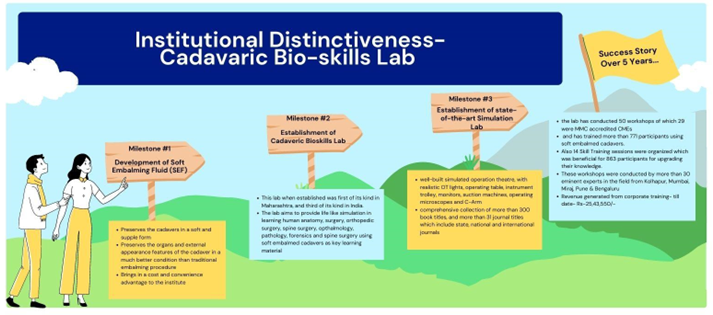
FIG A - SHOWING DEVELOPMENT OF THE CADAVERIC SKILLS LAB
Infrastructure
The lab is equipped with the state-of-the-art equipment for conducting cadaver-based training programs for both undergraduate and postgraduate students. These equipment include a well-built simulated operation theater, with realistic OT lights, operating table, instrument trolley, monitors, suction machines, operating microscopes and C-Arm. All the equipment and the facility have round the clock inverter support for uninterrupted service.
The lab has a comprehensive collection of books, scientific journals, and other learning resources including e-books and journals which are available to all learners and readers. Recent count shows more than 300 book titles, and more than 31 journal titles which include state, national and international journals.
Success story:
The lab conducts training programs and workshops for medical professionals who wish to continue their medical education through CME programs focussed on specific skills. Over past 5 years, the lab has conducted 50 workshops of which 29 were MMC accredited CMEs and has trained more than 771 participants using soft embalmed cadavers. Also 14 Skill Training sessions were organized which was beneficial for 863 participants for upgrading their knowledge.
More than 30 eminent experts in the field from Kolhapur, Mumbai, Miraj, Pune, Bengaluru and involved the specialties of anatomy, surgery, spine surgery, orthopedics, opthalmology, vascular surgery, laparoscopy, hand surgery, otorhinolaryngology conducted these workshops. This lab also filled a gap, as students from private medical colleges are deprived of experience of attending and studying the post mortem examination. Using technology to live relay these workshops has helped students to visualise and learn the basics of post mortem examination. The lab as of now has generated a revenue of Rs-25,43,550/- which DYPES hopes will grow in future.
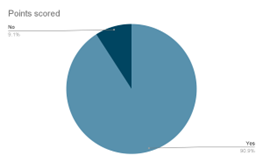
(A) Improved surgical skills
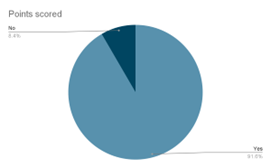
(B) Improved confidence
Fig B - FEEDBACK ANALYSIS SHOWING REPORTED IMPROVED SKILLS AND CONFIDENCE.
The lab also has a exemplary record in promotion of cadaver donation. This is a difficult task, as convincing a family to donate the last remains of their loved ones to science instead of its traditional farewell is often a gut wrenching decision and burden. Family members are often apprehensive of the embalming, the changes in the body after the procedure, and more importantly, whether the cadaver will receive the dignified handling it deserves in the hands of the learners. On last count, the lab has more than 30 cadavers, with more than 600 cadaver donations in past 30 years and counting. The lab has 14 cadavers in soft embalmed form in active use.
Social Connect & Ethics
The lab works tirelessly to quench the anxiety families have before cadaver donation. They talk, counsel, reassure and sometimes, demonstrate the high standards of care and treatment cadavers receive at the lab. The department also conducts a cadaveric oath ceremony for all new MBBS students before starting their dissection training. It instills into them, a sense of duty and gratitude towards the individuals and families, as the generous act of cadaver donation is their first stepping stone into the world of modern medicine. The community welfare drives such as free mortuary service helps us connect to society.
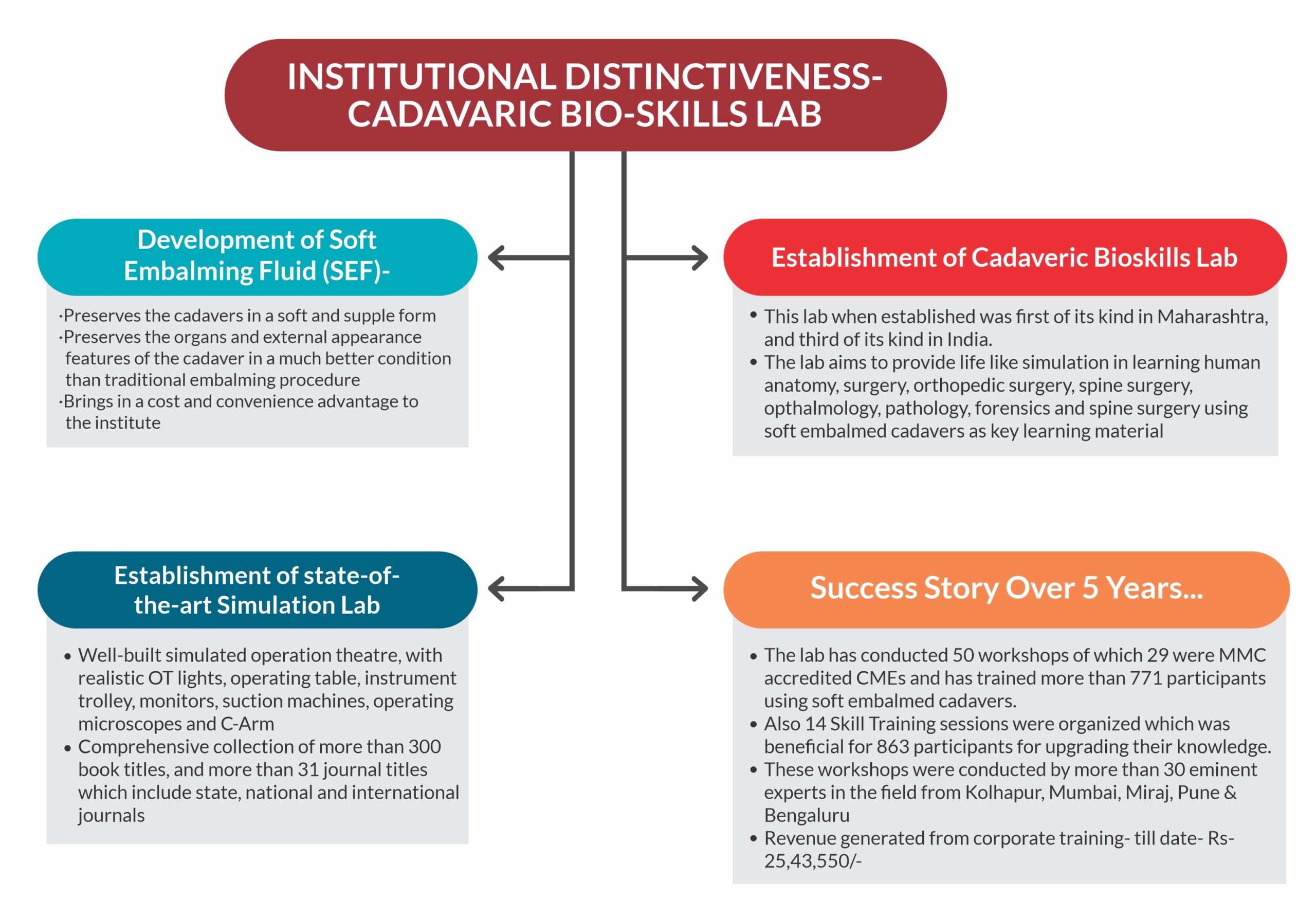
The cadaveric bioskills lab is our institutional distinctiveness. DYPES aims not to restrict this facility for our students, but welcome interested learners from nearby areas, medical colleges to learn on this novel innovative method for learning basic anatomical and surgical skills. The evidence of success of this practice is the feedback from our students, teachers and participants from various workshops using soft embalmed cadavers, not to mention the continued positive response to our cadaver donation appeal to the community.
